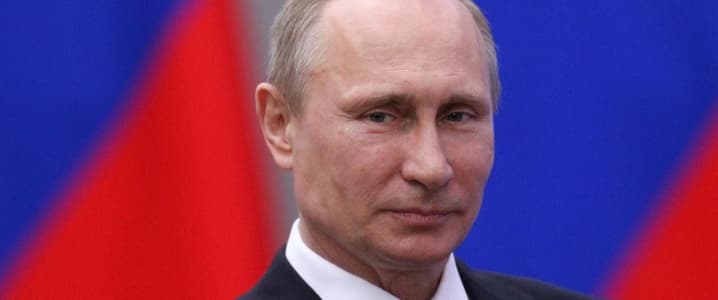2018 was supposed to be a transformative year in Russia – presidential elections are looming, the Russian economy is expected to bust out of its current slump and the oil sector’s tax regime was set for significant changes. The long-mooted move to implement a switch to an excess-profits tax-based (EPT) regime has long been the pet project of Russia’s Ministry of Finances, yet recent developments suggest the ambitious scope of the proposed reforms will most likely be brought to naught. It would be a shame if this happens, as the EPT would be conducive both to the revival of Western-Siberian oil fields and the kick-starting of new resource-rich productive formations.
Most industry actors agree that the current oil taxation regime in Russia is inefficient, stymieing the development of new fields in Eastern Siberia and other as of yet largely untapped regions and the enhancement of production from brownfield projects in Western Siberia. The tax regime currently in effect is based on production – the mineral extraction tax (MET; as of today, cca 16 USD/metric ton) is applied to every ton of oil produced. To this, oil producers are levied an export duty in case they supply the oil abroad, which varies by month – in April 2017, it will stand at 88.9 USD/metric ton. The Finance Ministry’s proposal intends to set an EPT that would levy 50 percent of every company’s net earnings excluding production and transportation costs, instead of the MET. Production and transportation costs would be capped at cca 23 USD per barrel, all costs above this level would be subject to taxation.
Taking into consideration that pipeline costs to transport oil are relatively low, with transportation fees from the West Siberian hub of Nizhnevartovsk to Novorossiysk or Primorsk currently around 4.7-4.8 USD per barrel, and that production costs for most Western Siberian fields are within 15 to 20 USD per barrel, the EPT could be very beneficial for oil producers (and loss-entailing for the state budget). The gist of the excess-profit taxation initiative is to transform oil taxation from a production-related issue into a profit-based one. Concurrently, financial authorities intend to eliminate the export duty by 2022-2025. However, these ambitious plans, a logical extension of the 2014 tax maneuver, clashed with the reality of Russian energy – namely, factional infighting.
The Russian government is torn on the issue, wary of negative short-term fiscal consequences (the long-term advantages of profit-based taxation are rarely disputed) against the background of anemic economic growth and dissipating strategic reserves. Hence the decision to launch the tax regime change in so-called “pilot” regions in Western Siberia (brownfield and greenfield), Eastern Siberia (greenfield) and the Caspian (both). However, to compensate for the potential loss of budget revenue, the Russian government has been looking into a possible hike in the MET rate for brownfield projects. This would adversely affect first and foremost those companies which produce oil in Russia’s traditional oil regions – Tatneft has voiced its protest against such a move as its fields are predominantly brownfield and in the enhanced-recovery stage. If both the decoupling of pilot regions and the MET hike are implemented, the few remaining foreign investors willing to invest in Russian oil projects should be wary of worsening fiscal conditions in regions that did not implement EPT. Related: Saudis Bet Big On Houston As Drilling Activity Picks Up
As it seems, one of the main opponents of the EPT is Russia’s leading oil company, Rosneft, which, having swallowed up Bashneft last autumn, now represents 42 percent of the Russian aggregate. Instead of implementing sweeping across-the-board changes, Rosneft advocates decreasing the mineral extraction tax rate for the Samotlor field, claiming that such a pledge has been made ahead of the Glencore-QIG privatization deal. It would be hard to imagine that even Rosneft, a company that is closest to the current political establishment and in many ways embodies it, would be given such a preference as this would ultimately result in other companies demanding similar exemptions. Yet Rosneft’s resistance might very well defeat the Finance Ministry’s tax reform, leading to an awkward stalemate in which the only option is to postpone the reform until conditions are ripe.
Along with the discontented, various Russian companies stated their interest in transitioning to EPT in Western Siberia. Gazprom Neft, LUKOIL, Surgutneftegaz and RussNeft submitted their applications for fields, the output of which totals 7 million tons annually. This represents a mere 1.2 percent of the aggregate Russian output, however, any development is laudable against such a massive background of state-owned companies lobbying for supplementary tax benefits. The tax maneuver of 2014 was built on the premise that oil and high-quality oil product exports should be incentivized, whilst curtailing outbound supplies of heavy products like fuel oil. As opposed to the gradually declining export duty, the MET has been moving in the opposite direction – thus, small independent producers who do not export oil and oil products saw the market environment worsen this year. If the currently ongoing wrangling is to continue and the Russian Ministry of Finance will be unable to implement the long-mooted EPT tax reform
before the legislative quiescence of the pre-election year kicks in, their investment appeal will go down the drain.
By Viktor Katona for Oilprice.com
More Top Reads From Oilprice.com:
- OPEC Out Of Moves As Goldman Sachs Expects Another Oil Glut In 2018
- Busting A Myth: U.S. Dollar Impact On WTI
- Vital Oil Shipping Lane Becomes Target In Yemen’s Civil War


















